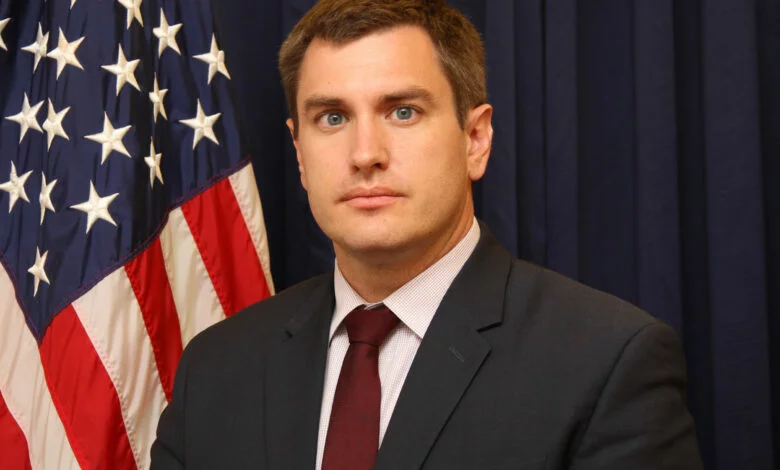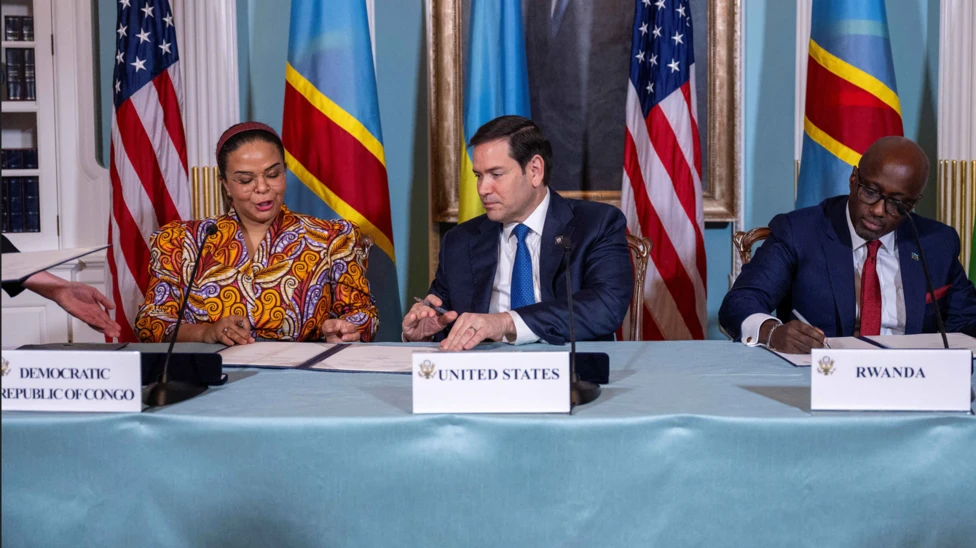HARARE – US embassy officials in Zimbabwe say the termination of the gamut of sanctions introduced on Zimbabwe two decades ago to focus on just President Emmerson Mnangagwa, his wife and deputy, among a blacklisted few, was an opportunity for Harare to address prevailing issues of human rights abuses and corruption under Zanu PF’s delinquent authority.
President Joe Biden on Monday narrowed the sanctions to just 11 individuals, most prominently Mnangagwa, his wife Auxillia, deputy Constantino Chiwenga, Defence Minister Oppah Muchinguri-Kashiri and controversial business tycoon Kudakwashe Tagwirei.
The new diplomatic intervention imposed under the Global Magnitsky Human Rights Accountability Act also targeted three entities for their alleged involvement in corruption and human rights abuses.
Zimbabwe has rejected the new measures as a half-hearted attempt by Washington to relieve the troubled African nation of a sanctions burden that has weighed on the nation’s efforts to restore economic prosperity.
The Zanu PF-led authority insists only a complete removal of the diplomatic action could put to rest, its protracted demands for their scrapping.
At a media briefing on Wednesday, the Chargé d’Affaires of the United States Embassy in Zimbabwe, Laurence Socha maintained the new targeted sanctions under the Global Magnitsky Human Rights Accountability Act imposed was an opportunity for Harare to address outstanding issues of human rights abuses.
Socha insisted the new sanctions programme was implemented to debunk the “misconception” that Zimbabwe as a country was under US sanctions.
“There are no sanctions on the people of Zimbabwe or its public. I think it’s important to realise that the security and prosperity of a country is not dependent on one individual alone.
“And the 11 individuals and three entities now sanctioned under Global Magnitsky have been determined to be responsible for corruption and human rights abuses.
“We see it as an opportunity for business to have a new look at Zimbabwe.
“It was hard under the previous program titled the Zimbabwe Sanctions Program to get away from perceptions that you could not do business in Zimbabwe.”
Critics and opponents of the ruling Zanu PF continue to live in fear of the regime amid targeted abductions, torture and sometimes killings by agents linked to the state.
The Zimbabwe government has also paid lip service to fighting high level corruption mostly benefitting individuals linked to the country’s ruling elite.
Socha said the new targeted sanctions were reflective of realities on the ground insisting that sanctions were not meant to be permanent.
“President Biden has determined that the authorities in the executive orders that he signed that implements the Global Magnitsky human rights accountability act is the best approach to address human rights and corruption concerns in Zimbabwe.
“The US has made regular adjustments to the previous now terminated Zimbabwe sanctions program including adding and removing individuals based on available evidence. U.S sanctions are not intended to be permanent.
“Our sanctions are most effective when they are up to date and reflect realities on the ground and that’s why we made the change this time,” said Socha.
















